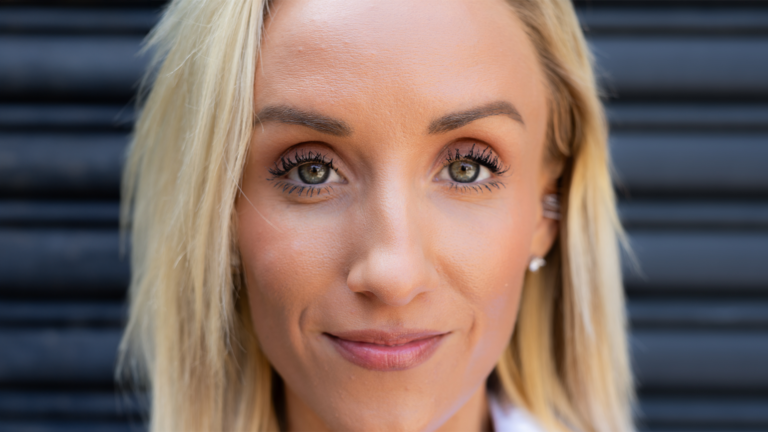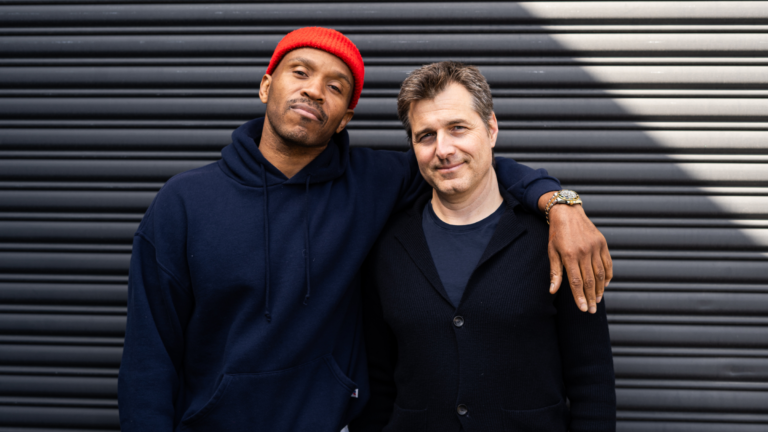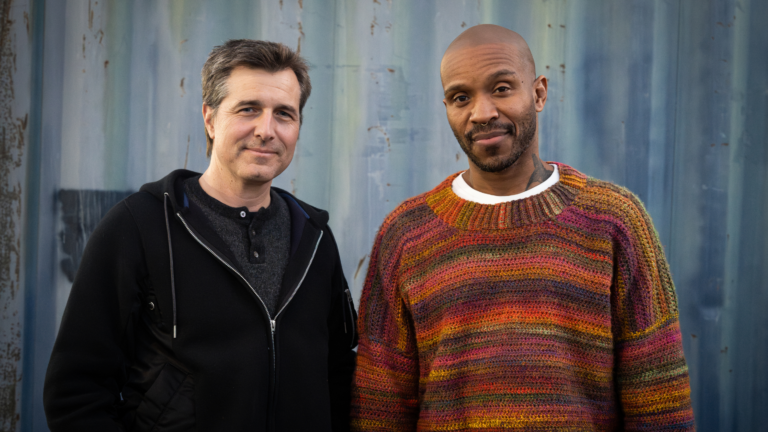This week’s conversation is with Judith Enck, a former Environmental Protection Agency (EPA) administrator, the founder of Beyond Plastics, and a visiting professor at Bennington College.
In 2009, Judith was appointed by President Barack Obama as the Regional Administrator of the EPA, where she oversaw environmental protections in New York, New Jersey, eight Indian Nations, Puerto Rico and the US Virgin Islands – in addition to managing a staff of 800 and a $700M budget.
Judith has also served as Deputy Secretary for the Environment in the New York Governor’s Office, and Policy Advisor to the New York State Attorney General.
Now, Judith is the founder and president of Beyond Plastics, an organization based out of Bennington College that is on a mission to end plastic pollution through education, advocacy, and institutional change.
I can’t think of many more pressing and important topics in today’s society than the environmental crisis – and I was shocked to hear some of the grim statistics and information Judith shared about where we’re at and where we’re heading if we don’t turn this thing around.
However, as you’ll hear Judith share, there is still hope – and it starts with all of us “doing what we can, where we are, with what we have.”
“It really is a global issue and it’s going to take a global solution. The United States is the top producer of plastics, so we should be the ones working the hardest to solve this.”
In This Episode:
State of the Union when it comes to plastics in the U.S.
It’s pretty grim. Americans and people worldwide care about the environment. They are particularly concerned about the proliferation of plastic pollution, which is a greater threat in the global south because the United States and the EU export a lot of plastic to other countries that cannot be managed in our own countries, which I think is extraordinarily problematic. There’s this disconnect between what the public wants and then what’s actually happening in commerce and in the world of politics and the reason why I’ve spent the last 40 years working on environmental protection issues is I’m a big believer in do what you can, where you are, with what you have. I am someone, just one person who cares about the environment in the United States. I’m not an international expert, but I certainly understand the implications internationally. We’ve got a fundamental problem in the United States. The US is four percent of the world’s population, but we use 17 percent of the world’s energy. We gobble up 24 percent of the world’s natural resources and then not surprisingly, we create 12 percent of the world’s waste. This is not sustainable and I think the plastic pollution problem illustrates the lack of sustainability more than almost anything.
The evidence is everywhere
I will say, at the end of my work day, I do kind of crawl to the finish line, but I wake up every morning actually excited and hopeful about change and that’s because I think we have the public on our side. People know something’s off and they want to do something about it and while I have met many climate change deniers, I’ve never met a plastic pollution denier because the evidence is everywhere. You go to a park, you see a plastic bag in the tree, you walk down the city street, you see people tossing cigarette butts all over the place and those cigarette butts have little bits of plastic in them. You’re at the beach, people have plastic water bottles. If it gets loose, it goes right into the water. The real serious part of this is that we are turning our ocean into a landfill. About 15 million metric tons of plastic enter the ocean every year, mostly from the land.
A harrowing outlook for our oceans and ocean life
The United Nations has documented close to 300 species are impacted by plastic pollution in a negative way. Sea birds, fish, marine mammals, and you and I, so the problem is getting worse. I know numbers are numbing, but one way to think about this is scientists tell us that unless we change things, and we are definitely going to talk about how to change the trajectory. By 2025, for every three pounds of fish in the ocean, there will be one pound of plastic and that is so serious, particularly for giant parts of the world’s population that relies on fish as their major source of protein. Fish, especially marine life that you eat whole, muscles, shrimp, oysters, all have micro plastics in it so it’s pretty serious. We’re really screwing the web of life.
It’s much larger than individual action
This problem is so serious that we cannot solve it with individual action. We need institutional change. I’m a former federal regulator, so the way I think you change the status quo is by passing new laws and then enforcing those laws and that is slowly happening all over the world. About 10 states now in the US have banned plastic bags. That’s overnight. During COVID, I would go to our local supermarket and pick up groceries curbside, I would order online and I would, because I didn’t want to go inside the store, and I would sometimes show up early just to watch people entering the supermarket with their reusable bags. Big burly guys smoking cigarettes in the parking lot and bringing in reusable bags. New Yorkers use about 22 billion plastic bags a year. Having a State the size of New York band plastic bags is significant. We are slowly making progress. That’s where the crack is. We have the public on our side. There was a recent poll that showed 82% of American voters want to embrace local, state and federal policies that reduce the use of plastic what’s really encouraging is that this is bipartisan. This is the Republicans, Democratic party, independent party, people across the board, people want to see less plastic.
Plastic is the problem
I support recycling of paper, cardboard, metal, glass. I started my town’s recycling program in upstate New York 35 years ago. Everyone out there, keep recycling. However, plastics recycling has been a failure and you’ve got really smart listeners who can make the distinction on what you should and shouldn’t put in your recycling bin. The article that I had in the Atlantic with co-author, Jan Dell from a group called The Last Beach Cleanup, articulated that in the United States we only recycle five to six percent of our plastics. Putting plastics into the recycling bin doesn’t mean it gets recycled and a lot of people are confused because there are the recycling, the iconic three chasing arrows and companies and brands put that on their packaging knowing full well that the plastic bag or the polystyrene or styrofoam package, that may have the chasing arrow symbol on it, but it’s not recyclable.
What can – and won’t be – recycled
There are literally hundreds of different types of plastics and they don’t lend itself to easy recycling. Think of your own house, you may have a bright orange detergent bottle near your washing machine, and then in your refrigerator you may have a clear squeezable plastic bottle for ketchup. Those things cannot be recycled together, so we have hundreds of different types of plastics, all with chemical additives that are different and all with different colorants. It’s not like the aluminum can or the news print, it doesn’t get recycled into a new detergent bottle or a new condiment bottle. It often will get recycled into decking for your back porch. It’s called down cycling, but what you and I and most people usually do is wish cycle. We put things into the recycling bin and just hope that it gets recycled. The reality is, if you look at the bottom of the container, you’ll see a teeny tiny number. Number one and number two can get recycled, but all the other numbers do not put in your recycling bin because it just contaminates the load.
Reusables are the way
What always wins is reusables. I know it’s not always possible. You’re not always schlepping your reusable with you, and look, none of us have to be perfect. You just do the best you can. I don’t know if you’ve heard the phrase zero waste, where there are a lot of people who aspire to creating zero waste. My favorite quote about zero waste is from a woman named Anne Marie Bono. She says, “We don’t need a handful of people doing zero waste perfectly. We need millions of people doing zero waste imperfectly.” You do the best you can. You don’t guilt trip people, but we should also make it easy for people. For instance, I came back from Europe a number of years ago and was so impressed with the number of public drinking fountains, drinking water fountains all over Rome, all over Italy. I could just keep refilling my container and I get back to New York City. You rarely see a public drinking water fountain.
How to get involved with and support Beyond Plastics
People should go to our website, which is beyondplastics.org, plural. We have a lot of good information on taking action in your own community and you can get involved to the degree that you’re comfortable and if you have no time but you have a lot of money, you can send us a donation and we will work for you. It’s tax deductible. We also, just earlier this year started a new initiative called Local Groups and Affiliates where three people or more can come together and start a local Beyond Plastics group. It really only takes three people in a community to change the world.
Call your Senators
Most members of Congress never hear from their constituents. If they get literally 15 or 20 phone calls on a bill, they pay attention, especially from constituents. People who are busy don’t spend time calling members of Congress that are not your elected representatives. You can call Senate Majority Leader Chuck Schumer. You can call House Speaker Nancy Pelosi, but you want to become pen pals or phone friends with your own house member and your two US senators. I know this is very US centric, and so people in other countries, you replicate it to your level of government, but in the US, call your two US senators and urge them to support Break Free from Plastic Pollution Act, which is Senate bill number 984 and then the same bill is introduced on the house side, HR2238 and there’s lots of information on the details of this bill on the Beyond Plastics website.
What is the opposition to eliminating plastics?
The opposition says it’s not realistic to get rid of plastics in our commerce. Plastics are cheap, which is true so why make people pay more? The question is, who’s really paying? We are paying with our health, we’re paying with taxpayers having to clean up all this litter. The plastic producers have no skin in the game. If you’re a big company like McDonald’s or Kelloggs or Unilever, your packaging designers sit down and they think about, “How do we make this attractive so people buy it and it stands out on the shelf?” They’re not thinking what happens to it after it’s purchased and we have to get them skin in the game and there are different State bills called Extended Producer Responsibility, which makes the packaging companies take some responsibility for what they’re flooding the market with. The major argument I hear, I go around the country, I support local polystyrene bans, Breakthrough from Plastics Pollution Act, Statewide bills to ban plastic bags. I hear the same arguments every time and that is, we don’t want to lose jobs. There are a lot of people employed in the fossil fuel and the chemical industry and that’s what plastics are made from and the second thing is, the alternatives to plastics are more expensive than single use plastic. That is sometimes true and my response is, “Expensive to who?”
Do we stand a chance?
If we stop relying so much on cheap plastics, we do. The problem is the plastic. We can do reusable, refillable, we can source reduced things. There is so much packaging that is layer after layer that we can even just get rid of. There are a lot of innovative green companies. I just coordinated a conference last week on plastic pollution and our closing panels were green companies that have eliminated or dramatically reduced their use of plastic. They’re doing it because the heads of these companies feel strongly about this, but also because there’s a market. We also have to mainstream this. Eliminating plastics shouldn’t just be for people who can spend a little bit of extra money or who have a lot of time to research things on the internet. It has to be in every community, regardless of income level.
What we can do
Make sure you’re registered to vote. Get other people registered to vote. Talk to friends and family. The midterm election in the US is going to be tight. I think we solve the plastic pollution crisis with a combination of political action and personal action. What I urge people to do personally is look at their own homes, their own places of business. What’s your heaviest use of plastic? Unless you use a freakish amount of ketchup, don’t worry too much about the ketchup bottle. If you’re getting a cup of coffee every day in a plastic cup, let’s switch that out. Look at your heaviest use of plastic and see what you can switch.
Daily decisions add up
It’s so easy. Plastic as the last resort. If your car has broken down and it’s hot and you’re at a gas station and you really need water, go ahead and buy that plastic water bottle, but if you’re in your normal day to day life, hopefully with a reliable way of getting around or mass transit and you’re at the supermarket, you’re going to find you don’t have a lot of choice. Anything you can do to avoid plastic should be your framework and then reusables are the best. If there are products that are not over-packaged… Beyond Plastics is doing a grassroots campaign calling on Trader Joe’s to stop over-packaging all of their produce, which they promised they would stop doing a couple years ago and they haven’t. I like shopping there because of all the organic options that are affordable, but I don’t buy most of the produce there because one or two things are in plastic tombs. You’ll know it when you see it. If something is over-packaged in plastic, even if you have to go somewhere else, just don’t buy it.


